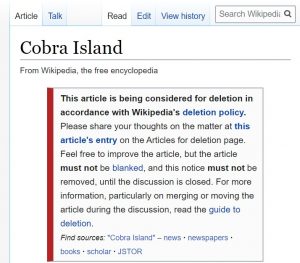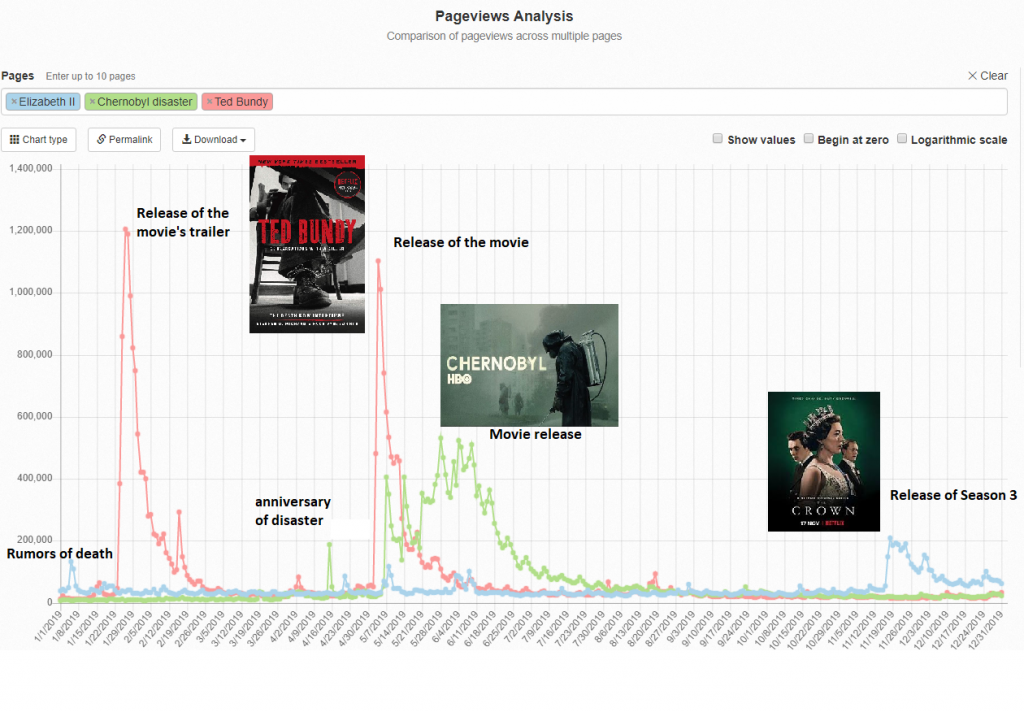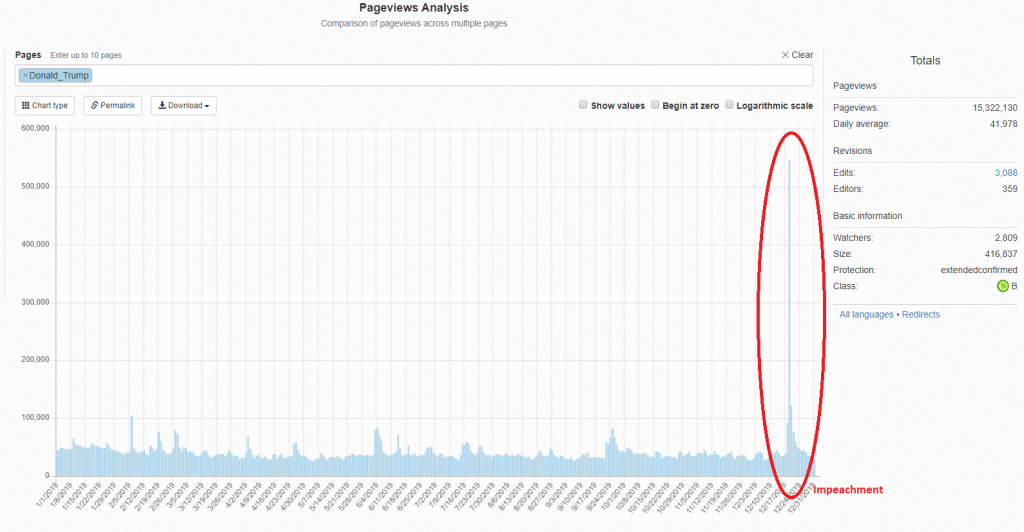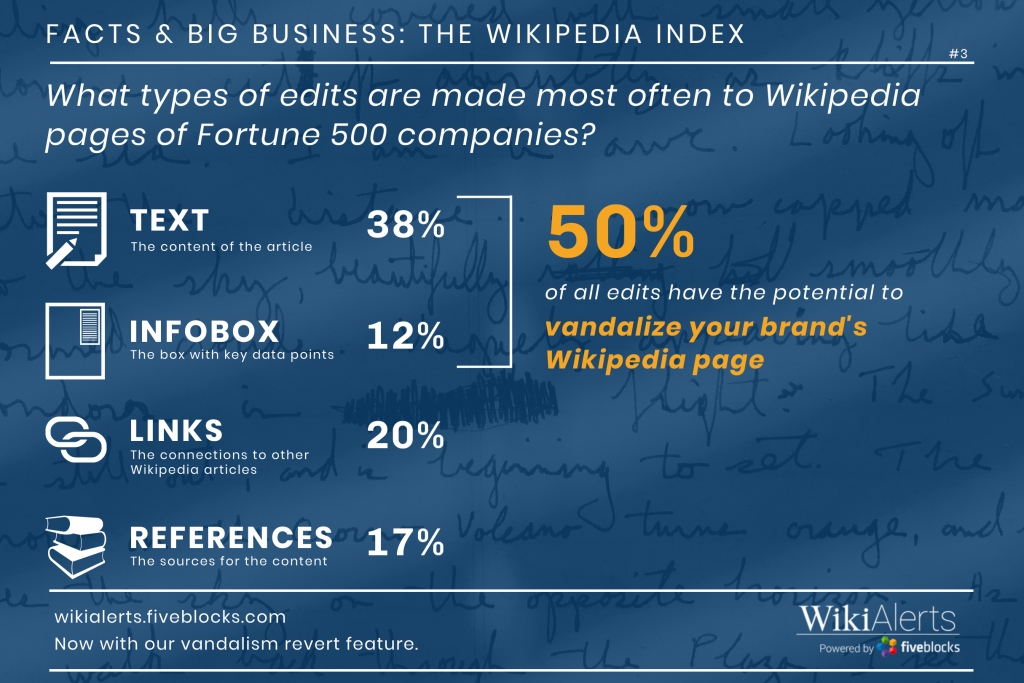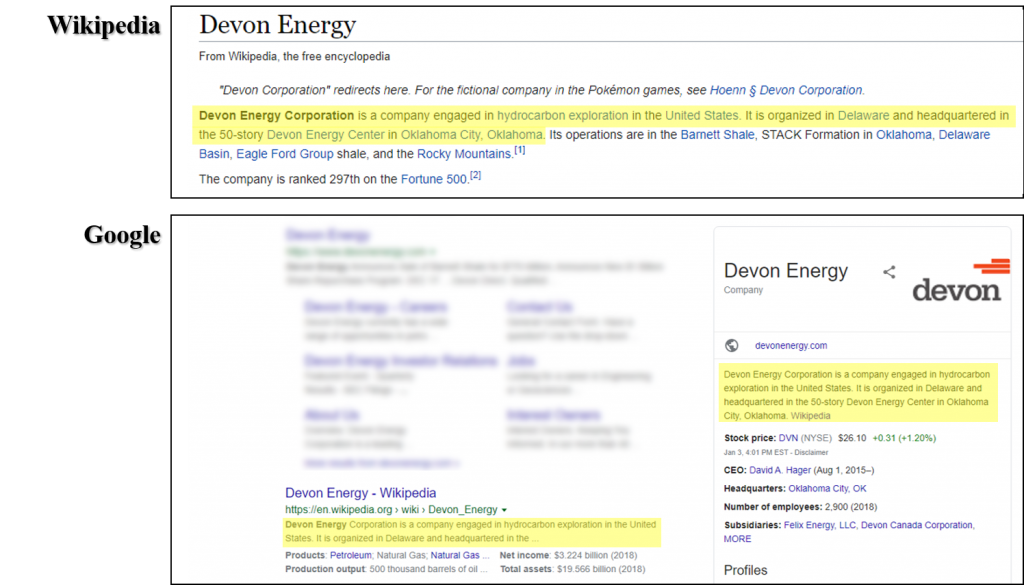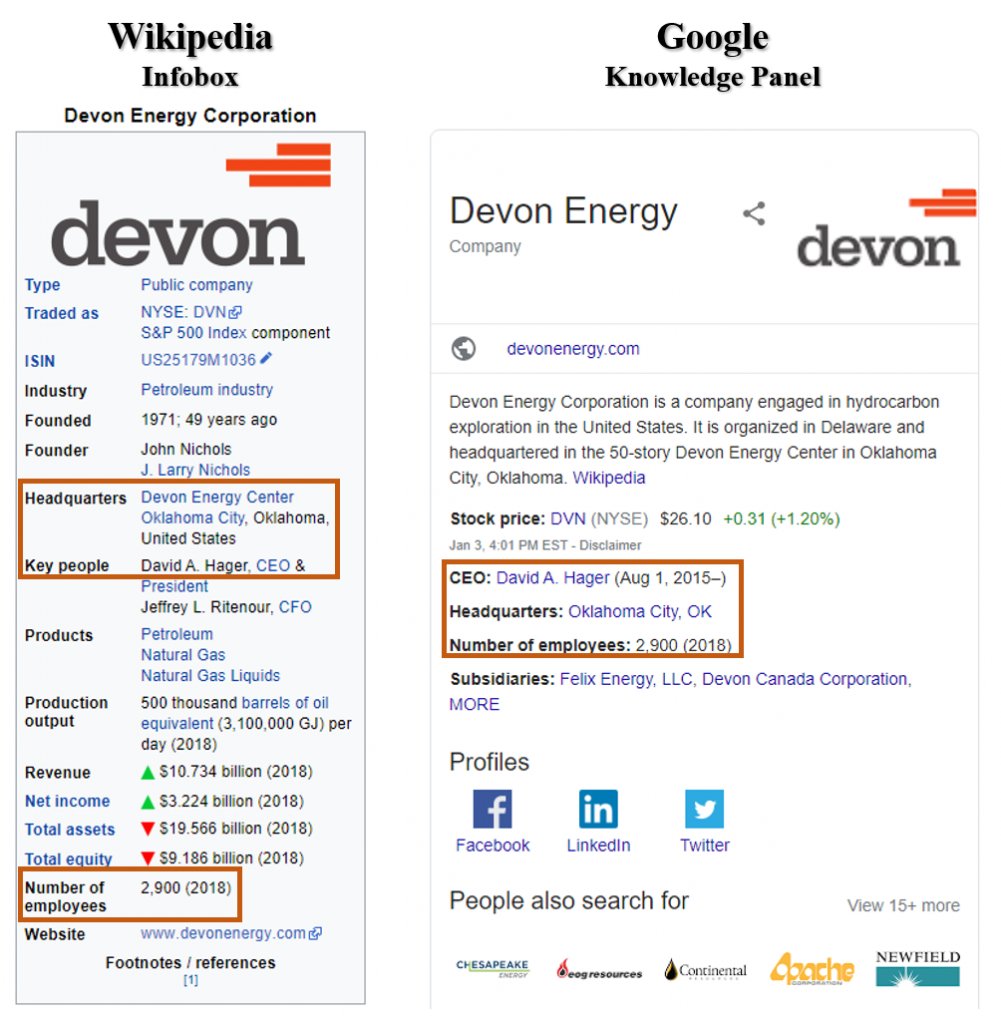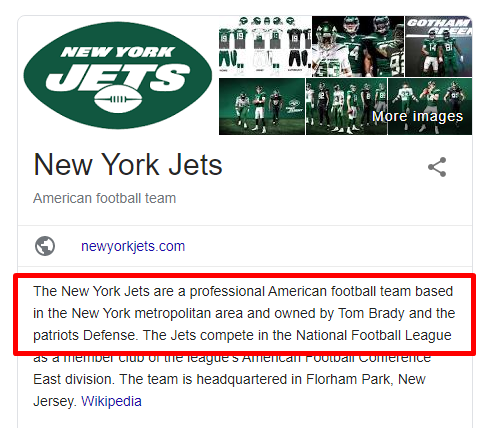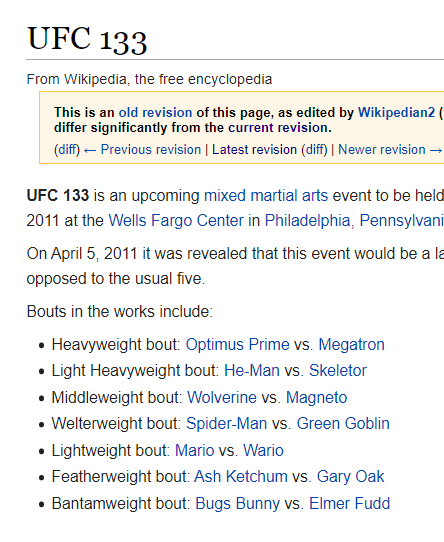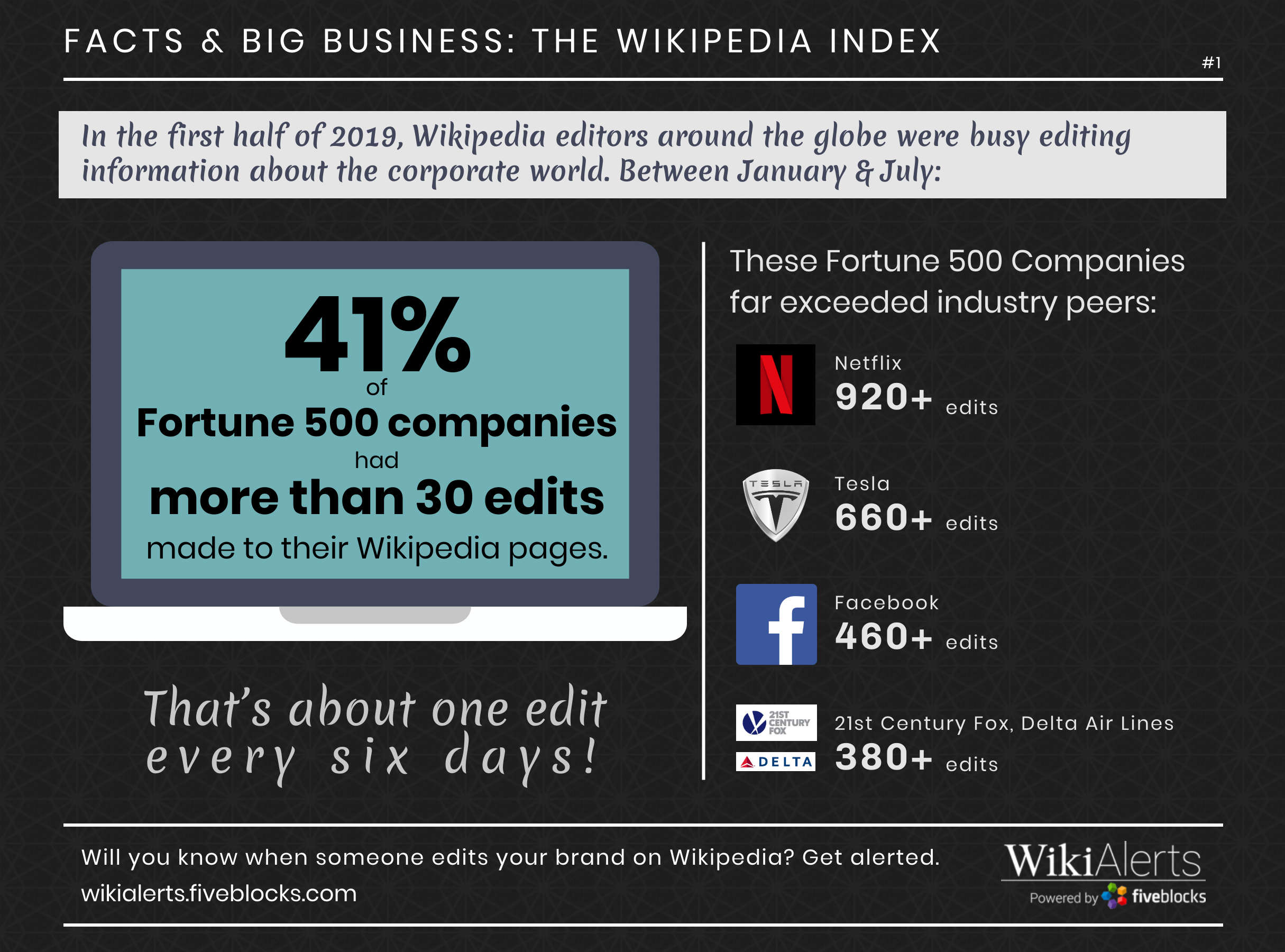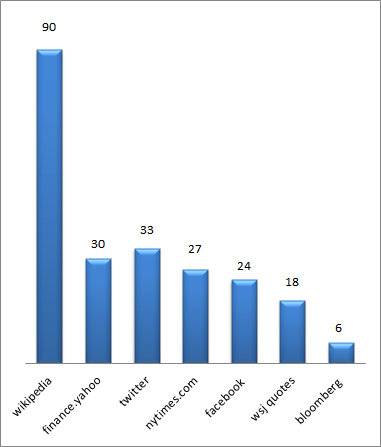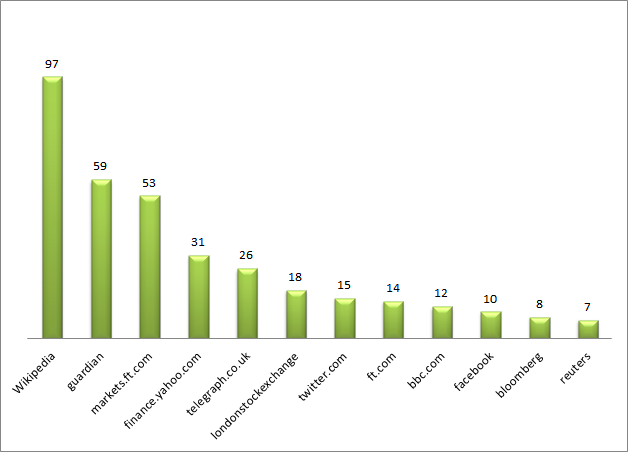Navigating Wikipedia: A Basic Guide for PR Professionals
It happens all the time: We are consulted by PR firms with the question: Why is a certain request for a Wikipedia article consistently rejected by the editor community? One firm told us, in exasperation: “Our client is a noted professional in her field. She has 30,000 followers on social media. She has appeared on television a few times. Her results, for credibility reasons, should surely include Wikipedia. Why is relative fame not enough for Wikipedia? What on earth does it take?”
Great question! Here is our answer.
Wikipedia Land, located at the top of the information stream, is hard to navigate without a map. Many great PR teams get lost there, and could potentially save themselves much time and trouble by better understanding the routes the experts take. (See here for more on editing Wikipedia.)
Here are some notes, compiled from the advice of some of my colleagues, who are experienced trekkers.
- Notability is the gold standard for a page on Wikipedia (see why this is, below.) This is not the same as being well-known. Having a podcast, or appearing as an expert on TV, can sometimes help with Twitter verification; but they are not sufficient for Wikipedia. The theoretical bar for notability in Wikipedia generally amounts to something like: If we were writing a big encyclopedia for a time capsule, this person or entity would need to be included.
- Since this is so hard to prove, the gateway becomes sourcing. Notability on Wikipedia is determined by legitimate sources, as follows:
- Sources need to be independent (i.e.: not the company’s own website, self-published corporate history, or a press release) and from a reputable, non-tabloid-type source (eg: The Wall Street Journal works great, but The Daily Mail won’t fly.) You generally need three or more of these to help you to get over the notability hump – but there is no exact formula here.
- The sources you cite need to be largely ABOUT the individual or company in question. Sources that mention the entity in passing (e.g. your client is mentioned in a list of top twenty women in education) will generally not do the trick.
- Wikipedia doesn’t accept content that is generated or spoken by the subject of the article for most purposes. However – there are exceptions to this rule, namely, uncontroversial, easily provable statements that the subject makes about themselves (e.g. “Born and raised in Topeka, Kansas.”). Interviews are often not regarded as a good source for most claims, unless the journalist makes independent observations that support the assertion made in the Wiki article.
- On a related note, there is a separate issue of verifiability: The sources you use should expressly support the claims you make on the page as everything written on the page needs to be backed up by legitimate sources. For example, if you are a well-known pediatrician, and are extensively quoted in articles about a nutritional health crisis, these sources would still not be useful to support a statement such as “Dr. X is 55 years old and a graduate of Duke Medical School,” unless this is mentioned in the article. In other words, the source must support the information you want to present in a direct way.
PR teams working to secure press for clients obviously have several goals in mind, but if getting clients to the point of Wikipedia notability is one of these goals, aim for multiple, independent sources that are reliable; intellectually independent of each other; independent of the subject; largely about the subject of the article; and which speak to the statement made (or which the client wishes to make) on the Wikipedia page.
So, for an archaeologist, an article in the New York Times about their innovative method of determining the age of artifacts would ideally be complemented by a trade journal article talking about recent discoveries, and a career highlights profile in a local magazine from their proud hometown, which would cover some biographical facts they wish to have on the page.
By the way, we know many people have flouted these rules in the past! But editors will eventually catch up to those old pages that went up in a shoddy way, and they can get flagged and suddenly taken down. Don’t look at Wikipedia articles created a decade ago and ask why that person got away with less; it is a brave new world, and these rules are much more strictly enforced now.
A few more notes:
- Language on Wikipedia can never be promotional or sound like it was written by a marketing team. A company can be an “industry leader” if that is borne out by a source, but “America’s best-loved brand” type-language would not pass muster. A company’s mission statement belongs in a section describing its marketing efforts.
- Images need to be copyright free – since the rules of Wikipedia state that anyone surfing the internet can use the image. It is essential that whoever holds the copyright has released their rights to compensation for re-use on Wikipedia and elsewhere on the internet. (There are different types of licenses with different limitations and requirements, for instance, to mention the photographer’s name, or to not be able to change the photo in some way, but the crux of the matter is giving up the main copyright for compensation in order to reuse.) There are exceptions to this, most importantly regarding logos. A company’s logo can be used in a Wikipedia article without the company relinquishing copyright. This is justified based on a fair use rationale – the company still owns the copyright, but the logo may be used on Wikipedia anyway.
If you find yourself challenged by these rules, you are not alone. Even future Nobel Prize winners are not spared this indignity! We explored the notability guidelines, and their sometimes curious effect of barring truly notable individuals from the door, in this article about the physicist Donna Strickland.
Of course, if you are having trouble traversing this strange landscape, you can always turn to us, your trusty guides, for advice and direction.
Editing the Wikipedia Article about You or Your Company
LAST UPDATED – December 2022
One of the most popular questions we get regarding Wikipedia is whether a company can edit its own page. The short answer is – not really.
You see, the purpose of Wikipedia is to provide an encyclopedia of impartial knowledge. Content that is promotional, self–serving, or biased will often get flagged or removed by other editors..
Wikipedia’s official policy is:
“You are discouraged from writing articles about yourself or organizations (including their campaigns, clients, products and services) in which you hold a vested interest.”
In short, editing the Wikipedia page about your own company is usually discouraged, as Wikipedia wants to ensure its content is unbiased.
It’s also worth noting that the editing guidelines for Wikipedia are far more intricate than they may appear; the sources, writing style, and editor interaction are difficult to manage without signfiicant experience on the platform.
Important to keep in mind:
- Wikipedia editors frown upon and even penalize pages that appear to have been edited by the company without being transparent.
- Your IP Address will be recorded and can be seen by others. So never try to be anonymous while using a company-owned IP address.
- The Wikipedia editor community often track changes. Your edits can potentially trigger alerts for engaged editors. And they may act swiftly against your edits.
Before making a decision we recommend consulting with a Wikipedia expert to weigh options.
We offer Free Consultation and help in determining your options regarding Creation or Editing of Wikipedia pages.
We have helped many companies and individuals navigate Wikipedia and would be happy to discuss your options.
Do you need help editing your company or personal Wikipedia page?
A few words about how we work with Wikipedia editors:
- Help in determining notability – if you or your company are not yet seen as notable entities – perhaps there are steps you can take to get there?
- Create and submit factual content that may have been missed or under-emphasized by Wikipedia editors. We also suggest corrections for mistakes and vandalism.
- Consult with Wikipedia editors to ensure that proposed edits meet the terms of service and appropriately represent client interests.
- Work with Wikipedia and carefully consider timing. Introducing a Wikipedia page in advance of a crisis may be a good idea, while doing so in the middle of crisis could backfire.
Free Consultation regarding your brand’s Wikipedia challenge: Contact Us
Still have questions? See our FAQ
|
How do you edit an error on My Company’s Wikipedia page? While anyone can edit Wikipedia, editors are suspicious of articles that appear to contain conflict of interest (self-serving) edits. Here’s how we recommend getting essential changes made. How do you create a Wikipedia page? Wikipedia has strict standards for notability (who deserves a page), citations (proving facts with sources), and conflict of interest (impartial information), and many pages get challenged. It is therefore wise to consult with professionals. Can you edit your own Wikipedia page? The goal of the Wikipedia project is to be a comprehensive source for objective information, and editors are highly suspicious of articles that appear self-serving. Here’s how we recommend you go about getting edits made. Who can edit a Wikipedia page? Any edits to Wikipedia articles which add false, insulting, or inflammatory information or language in a deliberate manner are vandalism. If your page has been vandalized, read here about what you can do. Can I see who edited a Wikipedia page? To find editor names, go to the ‘View History’ tab at the top right of the Wikipedia page. The name of the editor appears next to each change, right after the date. Click on that name, and you will find out anything the editor has chosen to share with the public. |
Your Wikipedia Article Is Up For Deletion. What Do You Do?
Your company or your CEO has a Wikipedia article. Suddenly, you notice a tag on the top of the article screaming that the article is about to be deleted. What happened? Why is the article being deleted? Will it actually be deleted? And what, if anything, can you do about it?
Why Would Your Article Be Deleted?
Before we discuss how the deletion process works, it makes sense to explain briefly why your article might be considered for deletion. There are straightforward reasons for this, including copyright violations, vandalism, a lack of sources, and obvious advertising.
There are more nuanced reasons as well, the most relevant of which is the question of notability. Not every topic belongs on Wikipedia, and Wikipedia has specific guidelines about what makes a person or company notable. For a topic to be notable, it needs to have significant coverage in reliable sources that are independent of the subject. There are other specific criteria as well, all of which are explained on Wikipedia.
The Deletion Process
If you use WikiAlerts, or you carefully monitor pages that interest you in another way, you will be alerted as soon as someone tags your article for deletion.
Wikipedia editors may go about the deletion process in one of three ways:
- Speedy deletion: A speedy deletion is proposed by an editor when they believe that the article so clearly does not belong on Wikipedia that a full discussion is unnecessary. There is a long list of criteria that would warrant a speedy deletion. The most relevant for our purposes include: copyright infringement, unambiguous advertising or promotion, and the recreation of a page that was already deleted through a deletion discussion. The person nominating it for speedy deletion will specify the reason in the deletion summary and can immediately delete the page. They don’t need to wait for any discussion or agreement. Boom, it’s just gone.
- Proposed Deletion: If an article doesn’t meet the very narrow criteria for speedy deletion, but an editor feels that it should be deleted and that it won’t be controversial to do so, they can propose it for deletion. This is a gentle deletion tag, because any editor can remove the tag if they have justification for saving the page. If the tag remains for seven days, the page can be deleted.
- Articles for Deletion (AfD): When an editor feels that deletion is appropriate, but that a discussion should take place about the topic, they will engage in the deletion discussion process. The editor will nominate it for deletion with the AfD tag and create a new page where the discussion will take place. Other users who monitor AfD discussions will be notified that this conversation is taking place. Typically, a deletion discussion lasts for seven full days and consensus is NOT based on a tally of votes, but on consideration of reasonable, policy-based arguments.
At decision time, a Wikipedia administrator who has not participated in the conversation will access the arguments and decide that consensus was reached to delete the page, that consensus was reached to keep the page, or that consensus wasn’t clear. If it wasn’t clear, the page may be relisted to generate more conversation, or a decision of No Consensus can be decided and the article kept.
So Now: What Can You Do?
The preferred way to deal with the issue of deletion is to avoid it in the first place. As we all know, an ounce of prevention is worth a pound of cure. It’s always best to prevent this situation from occurring by making sure there are many good media sources about your brand. Before a Wikipedia article gets written about your company or CEO, make sure that there is extensive, impartial online coverage.
But what if you have not avoided it, and now you stand at the brink of deletion?
- DO NOT create an editor and jump into the conversation if you have a conflict of interest. Wikipedia has very strict guidelines about getting involved in creating, editing, or defending any articles that you have any connection to without declaring that connection.
- You DO have the option of creating a COI editor and going onto the talk page to suggest additional references or content that might help other editors to add to the Wikipedia page and the conversation.
- In addition, you can actually join the AfD (Articles for Deletion) conversation as a COI editor and make a strong argument for the inclusion of your piece (as a declared COI editor), but you will not be allowed to vote on behalf of your article.
It Ain’t Over ‘Till It’s Over
If the article ends up being deleted, don’t despair. It’s possible that sometime in the future the company or individual will become notable enough for inclusion in Wikipedia. In these situations, the focus should be on strengthening your website, Facebook, LinkedIn and other online properties to tell your story the best way you can even without Wikipedia. If you believe, however, that you really are Wiki-worthy now, then you should focus on getting more reliable, third-party, independent coverage online. That’s the way toward proving your notability, which is the high road to Wikipedia.
Wikipedia’s 2019 Trends: Entertain us, and maybe we’ll learn something
Wikipedia recently released its Most Viewed Articles for 2019. The report is an interesting window into what’s on people’s minds. It comes as no surprise that death comes in at #2 (deaths in 2019 was a page viewed by nearly 40 million people). Number one? The Avengers movie page.
English-language researchers are not all Hollywood-centric in their curiosity — a list of Bollywood films in 2019 comes in at #21, Ronaldo at #34, Messi at #82, and an article on the 2019 Cricket World Cup at #63. However, it’s American pop-culture, and culture-inspired curiosity, that dominate the top 100.
Entertain (and Educate) Me!
In fact, more than half of the top 25 articles are related to film, television, and entertainment. Superhero movies, including all three Marvel films released in 2019, got significant traffic, as did three separate Game of Thrones entries.
More encouragingly to the academic-minded readers, many of the popular articles are historical events and personalities popularized by dramatic reenactments. The lists includes pages on the Chernobyl disaster (featured in Chernobyl, the HBO mini-series); Queen Elizabeth II and various other members of the royal family (The Crown, a Netflix original); Ted Bundy (Conversations with a Killer on Netflix); Charles Manson (in Once Upon a Time in Hollywood); and the Central Park jogger case (dramatized in the Netflix miniseries When They See Us.)
These pages (as well as most pop-culture related pages) were overwhelmingly searched on mobile.
Somebody to Love
Freddie Mercury is #5 on the list; Bohemian Rhapsody, the story of his life and band (Queen, #46), raked in 13 awards in 2019. The actor portraying Mercury, Rami Malek, came in at #50. The box office hit brought in $903 million internationally and was the most watched movie at home in 2019. Comparatively, the movie about Elton John, Rocketman (released in 2019), won only three awards in 2019 and made (only) $195 million globally. Sir Elton comes in at #43, closer to Malek than to Mercury.
American singer and songwriter Billie Eilish ranks an impressive 10th on the list, and is, in fact, the only living person in the top ten. She is the youngest musician (at only 18) to have a hit song on the Billboard 200 list, and has received so many awards and nominations that these merited a separate page.
Politicians, Not So Much
All these cultural icons and entities didn’t leave much room for politicians, most of whom got bumped down the list compared to prior years. President Donald Trump ranked at #20; he was #15 in 2018. Some 3.5% of the current U.S. President’s views came in on December 19, 2019, the day after his impeachment.
In 2008, former President Barack Obama was #1. In 2019, he was #83.
The only other living politicians to make the list were Boris Johnson, Alexandria Ocasio-Cortez, and Kamala Harris.
Get with the Program
Each year, various technical information, protocols, and companies find their way on to the list. In 2019, Simple Mail Transfer Protocol (SMTP), HTTP 404, Null (SQL), and F5 Networks all made the list.
Incidentally, these technical articles, the one on the Bible, and the article on Wikipedia itself, were among the only articles overwhelmingly viewed on desktops. It is understandable that programmers would be working on desktops; conclusions about the other pages are tempting to guess, but harder to draw.
At the crossroads of pop-culture and tech, YouTube, TikTok, Google, Facebook, Elon Musk, and Jeff Bezos all made the top 100.
Apple’s absence is duly noted.
Who Writes This Stuff Anyway?
Who are the people producing Wikipedia’s information? Wikipedia’s army of 38,170,346 registered editors (that’s just English!) in addition to countless edits made anonymously, that’s who.
While Wikipedia’s articles can be edited by anyone, in reality 1% of the contributors are responsible for roughly 70% of the content. A relatively small number of editors are making significant amounts of edits to new and existing pages.
Launched in 2001, Wikipedia has quickly become THE open source collaborative project for global knowledge. It is among the world’s leading websites, so it isn’t surprising that its own entry ranks #3.
This is the year that was: We are overwhelmingly curious about popular culture, and luckily, a lot of popular culture makes us curious about the real world, as well.
Let’s Talk About It: How Wikipedians Resolve Their Problems
Wikipedia’s “Talk pages” are a vital resource, not just for Wikipedia editors, but for anyone who wants to understand human interaction among strangers who share a common goal.
Wikipedia users know that the crowd-sourced, online encyclopedia is the product of the collaboration of thousands of editors. What most readers probably don’t realize is that the real meat of the encyclopedia takes place on the back pages – where the Talk page serves as a kind of teachers’ room / Hyde Park hybrid to hash out both minutiae and fundamental differences in approach. (When a disagreement arises among editors about specific content in an article, the editors step back, refrain from further edits, and engage in a discussion about how to proceed, until consensus among the editors is reached.)
This collaboration is invisible to readers unless they look behind-the-scenes: Every article has its own Talk page, easily accessed by clicking on the “Talk” tab on the upper left corner of the page. Editors are expected to always be civil in their remarks on Talk pages, and to always assume good faith on the part of other editors. It does not always go down that way.
“Because it’s there.”
Most of the time an in-depth discussion of edits is unnecessary. Edits are usually straightforward and can be concisely explained in the edit summary box right before an edit is saved to the page. From time to time, two editors can even discuss their differences right in the edit box, where those differences can often be resolved relatively quickly and painlessly. (Those edit summaries are immortalized on the “History page,” which is found on a tab on the upper right side of the Main article space.) If the dispute, however, is complicated or the differences are large, the editors will need to take the discussion to the Talk page.
The Talk page is the hearth and home of Wikipedia collaboration. Editors go to the Talk page to explain larger, perhaps less obvious, and/or potentially controversial edits, with an explanation of why the editor made that change. The editor isn’t asking permission; rather the explanation is a declaration of intent, as well as an invitation to anyone who might disagree with that edit to state any objections.
Take the following polite and somewhat humorous example:
On the George Mallory article’s Talk page, a discussion ensued about whether this article should be included in the category for “disappeared persons.” One editor held that just because Mallory’s body was eventually found does not change the fact that he had ‘disappeared’ for 75 years. The other editor argued that the Wikipedia category called ‘disappeared persons’ is only for those who have not (yet) been found. One editor suggested creating a new category called “formerly disappeared” or perhaps “disappeared and found.” A third editor was called in, explaining that the intent of the category was for people who are “missing, remains not found.” A consensus was therefore reached asserting that for 75 years Mallory was considered a “disappeared person,” but as soon as his body was recovered, he could no longer be included in that specific category.
Rules of engagement
Of course, overzealous Wiki editors can sometimes turn Talk page discussions into battles that can become quite contentious: not recommended for the squeamish or faint of heart. Foreseeing the potential for ugly name-calling and other rude behavior, a compilation of rules has been developed which editors are advised to abide by on the Talk page; if disregarded, editors can be punished with exile. Miscreant editors can either be barred from specific articles where fellow editors have deemed them disruptive, or from the entire encyclopedia, if their unscrupulous actions have wrought more widespread havoc. Bans can be anywhere from a few days, to weeks and even months. Unrepentant vandals can face permanent exclusion from the website. The following are some of the rules that must be followed at the risk of a reprimand at best or permanent expulsion at worst if they are ignored:
- Communicate clearly: Make an effort to be clear, friendly and willing to explain why you have a certain opinion.
- Stay on topic: Stay focused on how to improve the article. Do not discuss irrelevant subjects.
- Do not discuss the editing process in general: There are other places on Wikipedia for those meta-discussions.
- Be positive: Talk pages are not for criticizing, bullying, or venting.
- Be objective: Easier said than done, but editors must not argue their own personal point of view about controversial subjects. Always ask “what do the sources say?” And “are those sources reliable?”
WP:CIVIL
This list only just begins to touch the tip of the iceberg of advice on how to remain civil on Wikipedia’s Talk pages. Despite the long list of guidelines, sometimes discussions can get out of control. Most of the time the guilty editor will first be gently rebuked and asked to cease and desist.
One such case happened during a discussion of whether the reasons for the financial failure of the Airbus A380 were being whitewashed. Reigning in the offending editor, another editor stated:
“Instead of making sweeping accusations, and “guessing” about the history, how about simply making some constructive edits to the body of the article to incorporate the information you believe to be missing. (You may well be right that the information is worthy of inclusion, but adopting a more WP:CIVIL tone in your comments here would do no harm whatsoever).”
The errant editor did not exactly apologize, but he did take the offered advice and refrained from any additional rude or sarcastic remarks.
Only when friendly persuasion or outright threats fail, will an editor be banned. In one fascinating case, an editor, who seems to have had an anger issue, banned himself after admitting to engaging in frequent bullying and rude behavior. (For the entire statement, which is truly remarkable go here.)
Sometimes even editors with the best intentions and the most polite and respectful behavior hit a wall and still cannot come up with an acceptable consensus about how to proceed. Wikipedia has several mechanisms that editors can turn to for help resolving these disputes.
Cheap thrills or the meaning of life?
Talk pages are a vital resource, not just for Wikipedia editors, but for anyone who wants to understand human interaction among strangers who share a common goal. Usually the length of a Talk page, the number of archived pages, the tone, and the timbre of the discussions are a direct corollary to how important the subject of that article is in the popular mind and in the prevalent zeitgeist. Many of the articles that have the liveliest Talk page discussions are about issues of vital concern to leaders, thinkers, and the general public
Talk pages at their best are fascinating; the pursuit of cooperation, compromise, and common purpose that unfolds on Wikipedia Talk pages are a window into the mind of the community working hard to create an entirely abstract edifice of knowledge, which is the foundation of human culture, and the cornerstone of our civilization. Every excellent article that is forged in the Talk page furnace creates another brick in that edifice of human knowledge.
For more information:
The Wikipedia Index: The Edits that Matter
We’ve noted before how important a Wikipedia page is: 98% of Fortune 500 companies have their Wikipedia page ranking in their first page of Google results. Previously (here and here), we examined the sheer volume of edits made to Fortune 500 companies’ Wikipedia pages.
But what is the nature of these edits? What kinds of changes are being made by Wikipedia’s many editors, and which ones should you care about most?
It turns out that the vast majority of all edits to Fortune 500 company pages are just one of four types – text, infobox, links, and references. Text and infobox changes are the most crucial.
Edits to text include changes, additions, and deletions of any text in the body of the article. This content is obviously what readers come to a Wikipedia page to see; what many don’t realize is that it’s also where Google pulls pieces of its search results.
Therefore, changes to text on a Wikipedia page often become incorporated into both the search page results and the knowledge panel (Google’s data summary box on the right side of the page).
In some cases, this happens as soon as an edit is made, creating an opportunity for vandalized text in Wikipedia to show directly in Google. We wrote about that here.
Another key component of a Wikipedia article for a company is the infobox. This is the box on the right side of a Wikipedia article that gives a synopsis of key points about the company. Critically, Google often pulls points directly from the infobox into its own knowledge panel.
Don’t Panic, But Do Pay Attention
Google and Wikipedia are two of the most visited websites in the world. When people search Google for information about a person or company, their answer on Google’s search results page often comes directly from Wikipedia.
Whether a company’s page is edited with malicious intent – vandalized – or simply updated with incorrect information, the strong connection between Google and Wikipedia means that edits within Wikipedia have ramifications for a company beyond just Wikipedia.
When someone edits the body of a Wikipedia article, that change may be picked up by Google right away, or it can take a few days. This sometimes allows other editors to undo or remove vandalized text before it ever makes it to Google. However, when an edit is in the first sentence of the Wikipedia article, Google picks up the change immediately, making such edits highly risky for the company or person. This can be the case also for edits made to the infobox.
Companies, brands, and individuals with a Wikipedia article about them need to be vigilant about continuously monitoring their Wikipedia pages for any edits. That way, they can be on top of any changes to these pages that don’t convey an accurate picture and, most importantly, take steps to remove these changes when necessary.
Trash Talk in the Edit Field: The Vandalism Wars
For real sports fan trolling, center court is Wikipedia.
Sporting events in the 21st century are played both on and off the field.
As highly paid athletes compete for fame and glory on televised fields and courts the world-over, an alternate set of teams compete in the shadows.
Fighting it out across cyberspace, on social media platforms, are the fans who mainly exercise their fingers.
The victorious show no mercy to the vanquished. They make memes mocking fumbles and celebrating touchdowns. What’s the point of your team winning if you can’t rub it into the face of those crushed and humiliated in defeat?
A surprising venue for this testosterone-driven trashing of players, umpires, and coaches: geeky Wikipedia.
Wikipedia, trusted as an authoritative source by most of the 1.6 billion people who use it monthly, has become a rather likely spot for good old hooliganism. Appearing at the top of page 1 in search results for many terms, yet editable by anyone, it is a most appealing target for vandalism: People will see what you scrawl.
However, there is a lesser-known, but more significant, consequence of vandalizing a Wikipedia page.
Vandals change Google.
Here’s a story.
Recently, the Patriots were crushing arch-rival NY Jets, and fans were looking for cyber blood.
And it was then that Patriots fan Pvega789 made his move. He logged onto the Jets’ Wikipedia page, and changed the lead sentence of the page to read:
“The New York Jets are a professional American football team based in the New York metropolitan area and owned by Tom Brady and the Patriots’ Defense.”
(Get it? “Owned?”)
Unknowingly, editor Pvega789 was also altering Page 1 of Google search results.
The Knowledge Panel that appears on the top right of Page 1 for a search usually takes its text directly from the opening sentence/s of a Wikipedia Page.
As Pvega789 saved his edit, Google updated the Knowledge Panel for the Jets virtually instantaneously, quoting the first sentence from Wikipedia verbatim.
As if that weren’t humiliating enough for the Jets, another anonymous editor went in 15 minutes later and corrected what he (or she) described as a “typo.” Now both the entry and Knowledge Panel read:
“The New York Jets are a semi-professional American football team”
Within a minute the vandalism was all reverted by an administrator, who also added protection to the page to temporarily prevent further vandalism. The Knowledge Panel returned to normal.
When the vandal has a sense of humor and the damage is reversed quickly, we can all have a chuckle about it. Like this edit made to a page about a martial arts event.
But what if it’s defamatory, mean, or intentionally malicious?
Vandalism can then have serious consequences, and stain reputations.
Sport isn’t the only arena where Wikipedia vandalism takes place. There are many other examples, to which we will not link here for obvious reasons.
- An ex-student unhappy about their old school
- A customer unimpressed with how a brand treated them
- A former employee disgruntled with their prior workplace
Any of these types of people can go onto Wikipedia with an ax to grind and run the page, at least temporarily, into the ground — and have that reflected in search, if it’s a well-known brand.
If it’s on a dormant page with minimal interest, vandalism can just sit there. Going months, if not years until someone notices it.
How does Wikipedia defend itself against vandals?
Protecting its integrity relies on it being able to identify vandalism quickly.
There are Wikipedia Bots designed with the sole purpose of detecting vandalism and reverting the edits.
There is also a page with a list of recent changes which editors can monitor to see what’s been happening recently.
Frequently vandalized pages can be protected to prevent unauthorized edits.
But this isn’t, as we have seen above, fail-safe. Who has time to monitor a Wikipedia page? Other than the aforementioned sports trolls, probably nobody.
However, there are great tools available to notify you when changes have been made to pages you track.
We will leave the final word to Abraham Lincoln, whose page on Wikipedia is one of the most vandalized of all time. In his Gettysburg Address he said:
“The world will little note, nor long remember what we say here but know that the problem with a Wikipedia page is that you can’t always depend on its accuracy.”
The Wikipedia Index: Facts and Big Business
We’ve said it before, but it’s worth saying again: Monitoring changes to corporate or executive Wikipedia pages is an essential component of reputation management.
As we’ve noted previously on this blog, Wikipedia is the 5th most visited website in the world, with 80 million registered users and 200,000 editors. Wikipedia has changed the way we seek out information and determine its accuracy, with two thirds of US adults saying that they sometimes or always trust what they read on Wikipedia, according to our recent research — which also found that half of Fortune 500 CEOs (and 94% of companies) have an entry that ranks on page one of Google for searches of their names. Wikipedia is a key component of online reputation for notable organizations and individuals.
With that in mind, look how frequently major brands have their pages edited by Wikipedia’s many editors:
WikiAlerts™ by Five Blocks facilitates monitoring by sending real-time email alerts when edits are made to tracked Wikipedia pages.
Knowledge is Power: Wikipedia Fact Sheet
The 5th most visited website in the world has changed the way we seek out information, and the way we think about knowledge as a collaborative effort. If you are a CEO with a Wikipedia page, that page will likely be the second result on a Google search for your name.
Here’s a 2019 look at Wikipedia:
Brand Reputation for the FTSE 100 vs. the Fortune 100
Before we can start work aligning a brand’s online reputation to match their corporate objectives, we need to understand something about the playing field.
We need to understand what types of results are typical for brands in the same market. Many of our clients are Fortune 100 and Fortune 500 companies, so we have done extensive research into this market.
Below is a table depicting the frequency with which we find various sites as top ten results in Google’s natural search results. (Data is from Nov 9, 2012).
The number above each bar represents the number of company search results in which each website appears.
As you can see from this chart, the most prevalent result for companies in the Fortune 100 is Wikipedia – appearing in 90% of page one results for Fortune 100 companies.
It’s interesting to note that Facebook and Twitter are each appearing in F100 first page Google results about 25% of the time.
Also interesting is that Yahoo Finance continues to be an important finance site as compared to Google Finance – which does not show up in the top ten.
A takeaway for companies in the space would be to look at the frequently occurring websites and determine if your brand should also have similar results. Knowing that Google tends to “like” showing a specific type of result seems to make it low-hanging fruit – an easy win if it’s something that will help your online reputation.
What about the FTSE 100?
In preparation for a week of meetings in London, we decided to compare the same type of data as seen in Google.co.uk results for the FTSE 100.
In the UK, Wikipedia is even more prevalent. Only 3 FTSE 100 companies have no Wikipedia page appearing in their Google page 1 results! Also noteworthy is the strength of The Guardian as a result shown in the first page Google results for 59% of all FTSE 100 companies! (Note to PR department – The Guardian is more likely to impact online reputation than the BBC, The Telegraph and Reuters combined!). In the UK Markets.ft.com outranks Yahoo Finance in prevalence by a significant margin, with Yahoo Finance still maintaining a significant foothold.
On the social media front, Twitter and Facebook are less than half as likely to be in the Google first page search results for a FTSE 100 company – as compared to a Fortune 100 company.
Notable as well is that neither group has video results coming up with any frequency. Image results show up in 6 of the FTSE 100 search results, but in only 2 of the Fortune 100 first page results.
With this knowledge, we are better prepared to look at FTSE 100 companies – and indeed at company results for other companies in the UK with a better understanding of which sites play significant roles in online reputation. When we approach a client program, we then take the additional step of doing a more exact comparison of the peer group – the companies or individuals that are most similar to the client. This offers further insight as to the way in which Google treats those keywords within the local search market.

